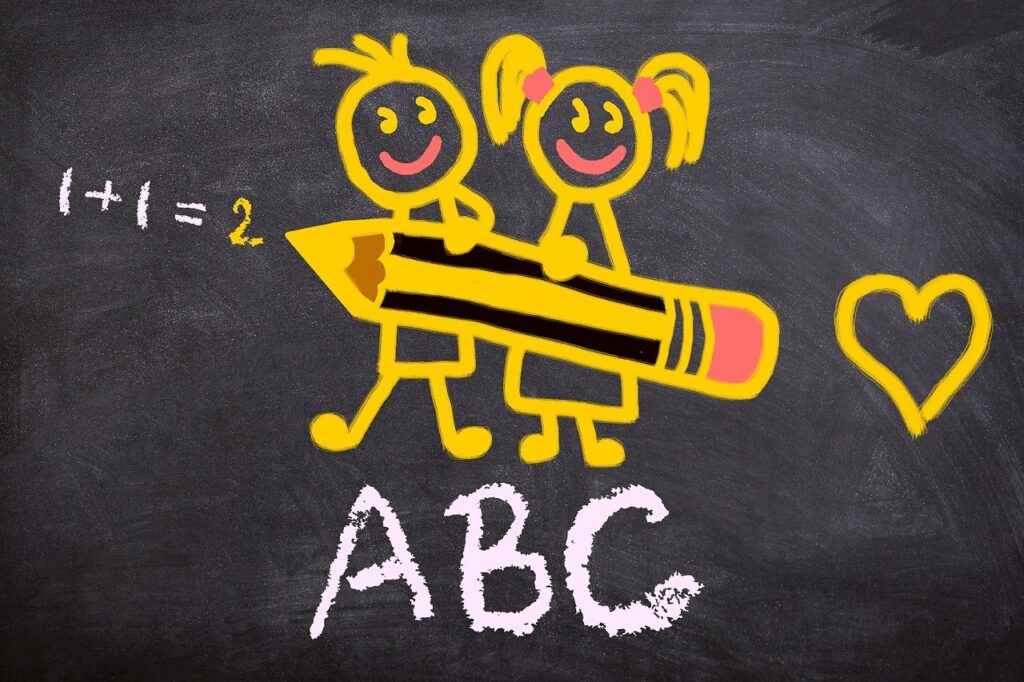A teaching career offers the opportunity to make a difference in the lives of students while providing a stable and fulfilling profession. This guide explores various aspects of pursuing a career in teaching, focusing on different types of teachers, education pathways, job market navigation, and tips for success. With a particular emphasis on adult learners and non-traditional students, this guide aims to provide helpful information and support for those considering a career in teaching.
Considering a Career in Teaching
People choose to pursue a career in teaching for various reasons. A passion for education often drives individuals to share their knowledge and inspire future generations. Teaching provides the opportunity to make a difference in students’ lives by shaping their intellectual and emotional growth. Moreover, the teaching profession offers job stability and growth potential, making it an appealing career choice for many. Finally, a career in teaching offers diversity in work settings and subject areas. With the variety of educational environments available, such as public, private, or charter schools, and numerous subject areas to specialize in, you can find the perfect fit for your interests and passions.
Teaching can also be an attractive option for those considering a second career. Skills from other professions, such as communication, organization, and problem-solving, are transferable to teaching roles. A career change to teaching can offer personal fulfillment and a renewed sense of purpose, as well as the chance to leverage one’s experience in a new context. Adult learners and non-traditional students face unique challenges when entering the teaching field, such as balancing work, family, and education. However, with determination and support, these challenges can be successfully navigated, leading to a rewarding career in teaching.

Types of Teacher Careers
The teaching profession encompasses various roles and responsibilities at different educational levels.
Early Childhood Teacher
Early childhood educators focus on the development of young children, typically up to age eight, and require specialized training in child development and early education. These teachers lay the foundation for future learning by fostering cognitive, emotional, and social growth in young children. Career prospects in early childhood education include preschool teachers, daycare providers, and early intervention specialists.
Elementary School Teacher
Elementary school teachers work with children in kindergarten through fifth or sixth grade, depending on the school system. They are responsible for teaching a range of subjects, including language arts, mathematics, science, and social studies. A bachelor’s degree in elementary education and state certification are typically required for this role. Elementary school teachers can advance to roles such as instructional coaches, curriculum specialists, or school administrators.
Middle and High School Teachers
Middle school and high school teachers specialize in specific subject areas, such as English, mathematics, science, or social studies. They help students build on foundational skills and prepare for college or career success. To become a middle or high school teacher, one must typically hold a bachelor’s degree in their subject area and complete a teacher preparation program. These teachers can also advance to leadership roles, such as department heads or instructional coordinators.
Special Education Teaching
Special education teachers work with students who have disabilities, tailoring instruction to meet their unique needs. They collaborate with other educators, therapists, and support staff to create individualized education plans (IEPs) for their students. A bachelor’s degree in special education and a state certification are required for this role. Career prospects for special education teachers include instructional specialists, behavior analysts, and special education administrators.
Postsecondary Teaching
Postsecondary teachers, or college and university professors, teach courses in their area of expertise and often conduct research. A master’s or doctoral degree is typically required for these positions, depending on the institution and subject matter. Postsecondary teachers may progress to administrative roles within their institutions, such as department chairs or deans, or pursue research and grant opportunities.
Requirements for a Career as a Teacher
To become a teacher, you must meet specific educational qualifications and certifications. A bachelor’s degree in education or a related field is typically required, and depending on your state, you may also need to obtain a teacher certification or licensure. This process often includes passing relevant exams and completing a certain number of supervised teaching hours. Some states do have reciprocity agreements so keep that in mind if you’re considering a move at any point during your career.
Apart from formal qualifications, successful teachers possess essential skills and attributes. Strong communication and interpersonal skills enable them to effectively share knowledge and build positive relationships with students, parents, and colleagues. Patience and adaptability are crucial, as they often encounter diverse learning styles and challenges. Teachers also benefit from creativity and problem-solving abilities, allowing them to develop engaging lesson plans and find innovative solutions to classroom challenges. Finally, time management and organizational skills are vital for balancing various responsibilities and ensuring a productive learning environment.

Pathways to a Teaching Career
There are several pathways to enter the teaching profession, ranging from traditional teacher education programs to alternative certification options.
Traditional programs include obtaining a bachelor’s, master’s, or doctorate degree in education. These degrees typically involve coursework in pedagogy, educational theory, and classroom management, along with supervised student teaching experiences. Graduates from these programs are equipped with the knowledge and skills necessary to begin their teaching careers.
Alternative teacher certification programs provide more flexible options for individuals seeking to enter the teaching profession. Online teaching degree programs offer the convenience of completing coursework from home, making them an attractive choice for adult learners and those with work or family commitments. Fast-track certification programs allow individuals with a bachelor’s degree in a non-education field to quickly become certified teachers. Career-switcher programs, designed for professionals transitioning from other fields, often provide a streamlined path to certification and focus on leveraging existing skills and experience in the classroom.
Professional development and continuing education play a crucial role in maintaining and enhancing one’s teaching skills. In-service training, provided by schools and districts, keeps teachers up-to-date on instructional strategies, curriculum changes, and educational technology. Workshops and conferences offer opportunities for networking and learning from experts in the field. Online courses and certifications allow teachers to pursue specialized training and enhance their credentials, ultimately leading to career advancement and increased job satisfaction.
Navigating the Job Market
Successfully navigating the job market in the teaching profession requires a combination of preparation, proactive job searching, and understanding the hiring process. To maximize the chances of finding a suitable teaching position, it is crucial to build strong professional connections through networking, create a compelling resume and cover letter, and prepare for interviews by researching the school and practicing common interview questions.
Job opportunities can be found through various channels, including online job boards, job fairs, and networking events. Many school districts and educational institutions post job openings on their websites, and professional organizations and associations often share job listings with their members. Attending job fairs and networking events can provide valuable face-to-face interactions with potential employers and help establish connections in the field.
Understanding the hiring process for teaching positions is essential for navigating the job market effectively. The application and screening process typically involves submitting a resume, cover letter, and any required documentation, such as transcripts or certification information. Once selected for an interview, candidates may be asked to provide a teaching demonstration or discuss their educational philosophy. After a successful interview, negotiating salary and benefits becomes the final step before securing a teaching position. Most states and school districts have approved salary bands that take into account teaching experience and highest level of education. Additionally, because you’re a state employee, most teacher benefits are the same as other state employees. One of the most attractive benefits for teachers is having the summers off.
Being well-informed and prepared for each stage of the hiring process can greatly improve the chances of landing a teaching job that aligns with one’s career goals and passion for education.

Tips for a Successful Teaching Career
Ensuring a successful teaching career involves implementing effective classroom management strategies, creating engaging lesson plans, and fostering a positive learning environment. Classroom management strategies help maintain order, promote positive behavior, and facilitate a focused learning atmosphere. Developing well-structured and engaging lesson plans ensures that students can effectively grasp the subject matter and stay motivated to learn.
Creating a positive learning environment involves making the classroom a welcoming and inclusive space where students feel comfortable asking questions and sharing their thoughts. Teachers can further support student success by collaborating with colleagues, staying current on educational trends, and participating in professional development opportunities. This helps educators continually refine their teaching practices and adapt to the ever-changing educational landscape.
Finally, maintaining a healthy work-life balance is essential for a successful and sustainable teaching career. Teachers should set boundaries, prioritize self-care, and seek support when needed to prevent burnout and ensure they can continue to make a positive impact on their students’ lives.
Financial Aid and Support for Teachers
Financial aid and support are available to help aspiring and current teachers fund their education and professional development. Grants and scholarships are monetary awards that do not need to be repaid and can be used to cover tuition, books, and other educational expenses. Many organizations, including federal and state governments, educational institutions, and private foundations, offer grants and scholarships specifically for teachers or those pursuing a degree in education.
Loan forgiveness programs, such as the Teacher Loan Forgiveness Program and Public Service Loan Forgiveness, provide eligible teachers with the opportunity to have a portion or all of their federal student loans forgiven after meeting certain requirements, such as teaching in a low-income school or working in public service for a specified number of years.
Additionally, some school districts and educational institutions offer tuition reimbursement and other employer-sponsored benefits to help teachers further their education and enhance their skills. These benefits may cover the cost of continuing education courses, workshops, or degree programs. By taking advantage of available financial aid and support, teachers can invest in their professional growth and career success without incurring significant debt.
Conclusion
This guide has explored the various aspects of pursuing a teaching career, including different types of teachers, education pathways, job market navigation, and tips for success. With a particular emphasis on adult learners and non-traditional students, this guide aims to provide helpful information and support for those considering a career in teaching. Teaching is a rewarding profession that allows individuals to make a difference in students’ lives and contribute to the betterment of society.
As you consider embarking on a teaching career, we encourage you to explore additional resources and support from Pathways2Advancement. Our website offers comprehensive information on education options, financial aid, career advice, and more to help you make informed decisions and reach your career goals. Visit our Pathways2Advancement website to discover how we can support your journey into the world of teaching.
Resources of Aspiring Teachers
National Education Association: https://www.nea.org/about-nea/our-members/aspiring-educators
Office of Elementary & Secondary Education: https://oese.ed.gov/resources/learning-at-home/resources-for-teachers/
We Are Teachers: https://www.weareteachers.com/free-teacher-resources/

